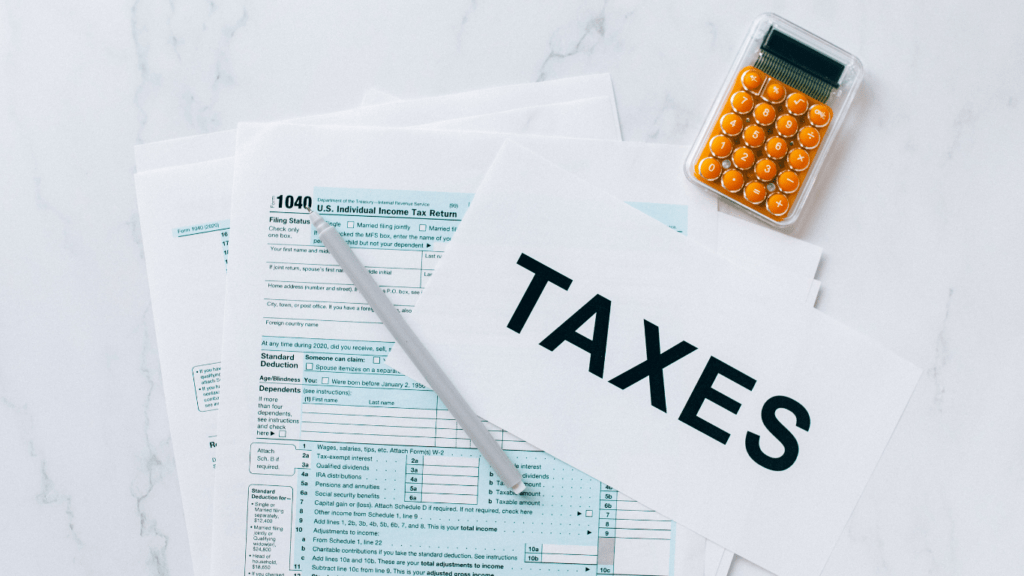Curious about the tax implications of crypto mining and staking? As a seasoned writer with a knack for simplifying complex topics, I’ll guide you through the essential details. When it comes to navigating the world of cryptocurrencies, understanding the tax obligations is key to staying compliant and maximizing your returns. With the rise of crypto mining and staking as popular methods of earning digital assets, knowing how these activities are taxed can make a significant difference in your financial strategy.
In this article, I’ll break down the tax considerations for crypto miners and stakers, shedding light on the IRS guidelines and best practices to manage your tax liabilities effectively. Whether you’re a seasoned crypto enthusiast or just starting in the digital asset space, grasping the tax implications of mining and staking is crucial for making informed decisions and optimizing your financial portfolio.
Understanding Tax Regulations for Crypto Mining and Staking
As an avid follower of cryptocurrency trends, I delve into the tax intricacies surrounding crypto mining and staking. Let’s explore the essential aspects of tax regulations governing these activities.
Definitions and Key Differences
When it comes to tax obligations, understanding the variances between crypto mining and staking is crucial. Mining involves using powerful computers to solve complex mathematical problems for validating transactions and adding them to the blockchain. On the other hand, staking is the process of participating in transaction validation on a proof-of-stake (PoS) blockchain by locking up coins.
How Mining and Staking Are Taxed
For tax purposes, both mining rewards and staking rewards are considered taxable income by the IRS in the United States. Mining rewards are taxed as self-employment income, subject to income tax and self-employment tax. Staking rewards, on the other hand, are taxed as regular income based on the fair market value of the coins at the time they are received. It’s essential to keep detailed records of all transactions and rewards to accurately report them on your tax return.
Tax Reporting for Crypto Miners and Stakers
Documenting Your Crypto Activities
When engaging in crypto mining and staking, I need to maintain detailed records of all my activities. This includes keeping track of when I receive mining or staking rewards, the fair market value of the coins at that time, and any associated expenses related to these activities. By documenting my crypto transactions diligently, I can ensure accurate reporting on my tax returns and demonstrate transparency in my financial activities.
Critical Filing Deadlines and Forms
I’ll need to be aware of important deadlines and required forms when reporting my crypto mining and staking rewards. For miners, if I earn more than $400 in mining rewards, I should report it as self-employment income on Schedule C of my tax return. Stakers should report their rewards as regular income based on the fair market value at the time of receipt. Form 1040 is typically used to report staking rewards, while miners may need to fill out additional forms depending on their circumstances. Staying informed about filing deadlines and using the correct forms is essential to meet tax obligations and avoid penalties.
Tax Deductions and Credits

As a crypto miner, I can benefit from deducting certain expenses related to my mining activities to lower my taxable income. These deductions can include costs for equipment, electricity, mining software, and even a portion of my home expenses if I mine from there.
Deductible Expenses in Crypto Mining
In crypto mining, I can deduct various expenses to reduce my taxable income, improving my overall tax liability. These deductible expenses typically include:
- Equipment costs: such as ASIC miners, GPUs, or other hardware needed for mining operations.
- Electricity expenses: the electricity used to power the mining rigs.
- Mining software costs: expenses related to purchasing or operating mining software.
- Home office expenses: a portion of home-related costs if I mine from a dedicated space at home.
- Internet expenses: costs associated with internet connectivity for mining activities.
These deductible expenses help optimize my tax situation as a crypto miner, allowing me to invest more in my mining operations and potentially increase my profitability.
Tax Credits Available for Crypto Investors
As a crypto investor engaging in activities like staking, I may be eligible for certain tax credits that can directly reduce my tax bill. These tax credits can include:
- Renewable energy credits: for miners using renewable energy sources for their mining activities.
- Research and development credits: for innovative mining techniques or technologies.
- Energy-efficient equipment credits: for using energy-efficient mining hardware.
By understanding and utilizing these tax credits effectively, I can further enhance my tax planning strategy and maximize the benefits of my crypto investments.
Strategies to Minimize Taxes on Crypto Gains
As I delve deeper into strategies to minimize taxes on crypto gains, understanding the differentiation between long-term and short-term capital gains is crucial.
Long-Term vs Short-Term Capital Gains
When it comes to minimizing taxes on crypto gains, distinguishing between long-term and short-term capital gains is essential. Long-term capital gains typically have lower tax rates compared to short-term gains. In the United States, gains on assets held for more than a year qualify for long-term capital gains tax rates, which are typically more favorable. By holding onto your crypto assets for the long term, you may benefit from reduced tax obligations, ultimately maximizing your profits.
The Role of Tax Loss Harvesting
Tax loss harvesting is another effective strategy to minimize taxes on your crypto gains. This practice involves selling assets at a loss to offset any realized gains, thereby reducing your overall tax liability. In the realm of cryptocurrency, where volatility is common, strategically applying tax loss harvesting can help you optimize your tax position. By harvesting losses strategically, you can balance out your gains and losses, potentially lowering your taxable income and the corresponding tax burden.
By implementing a combination of these strategies tailored to your specific financial situation, you can effectively minimize taxes on your crypto gains and enhance your overall profitability.


